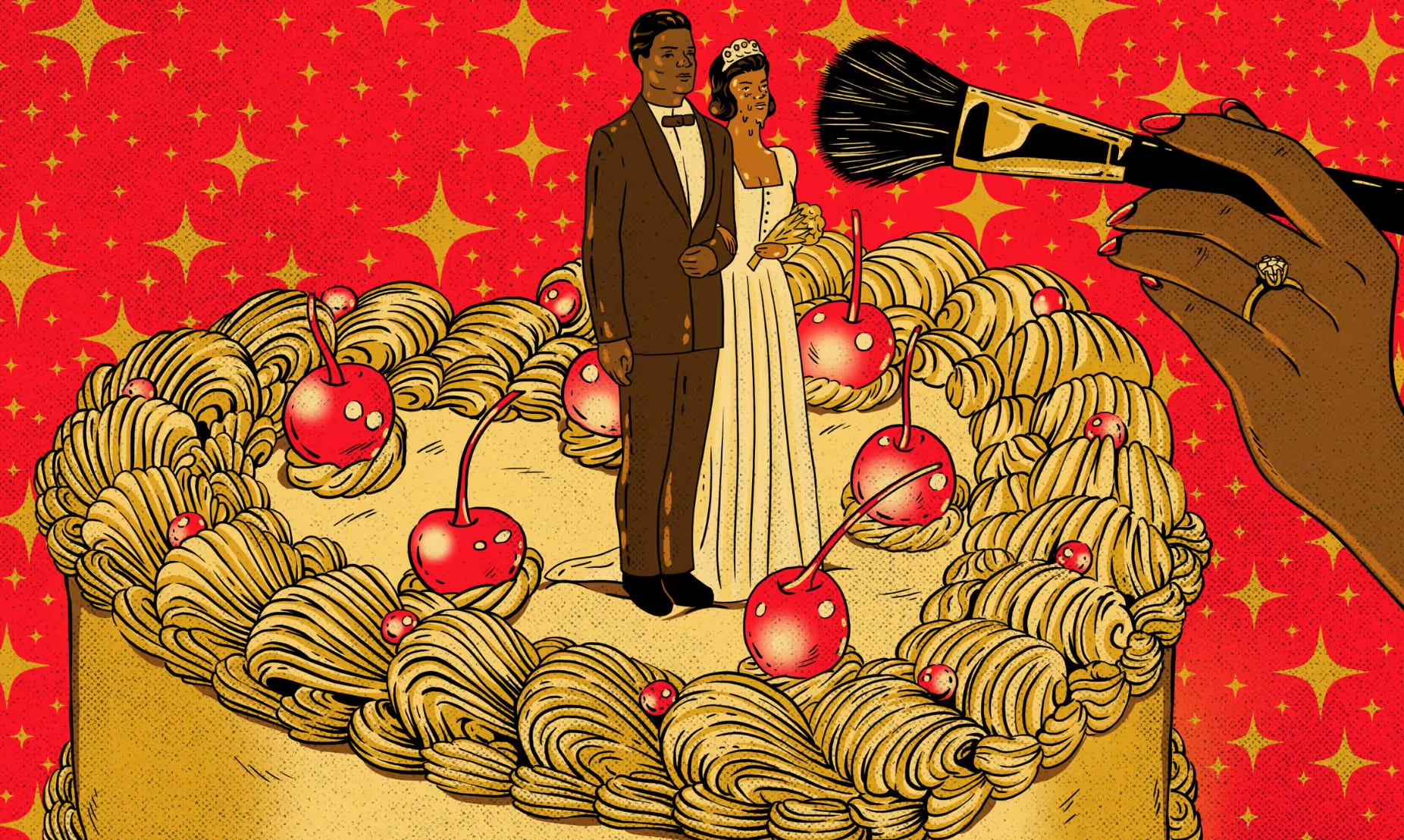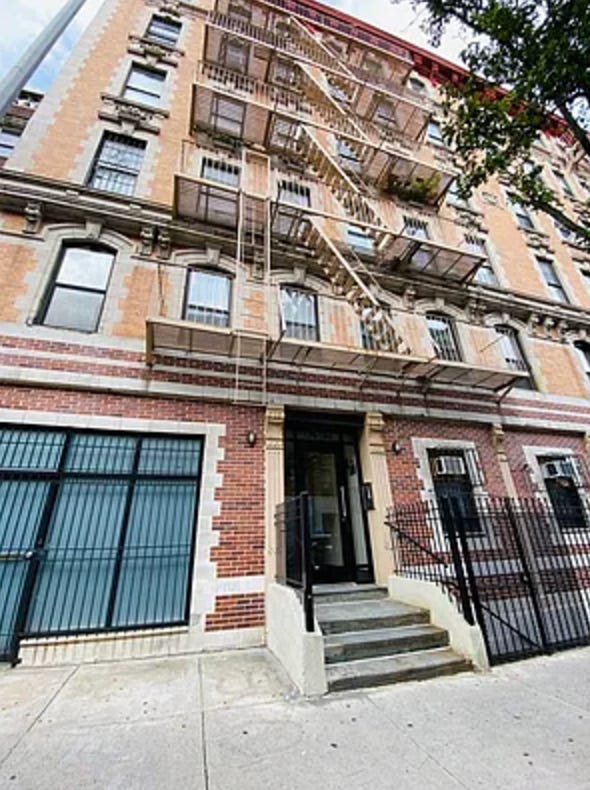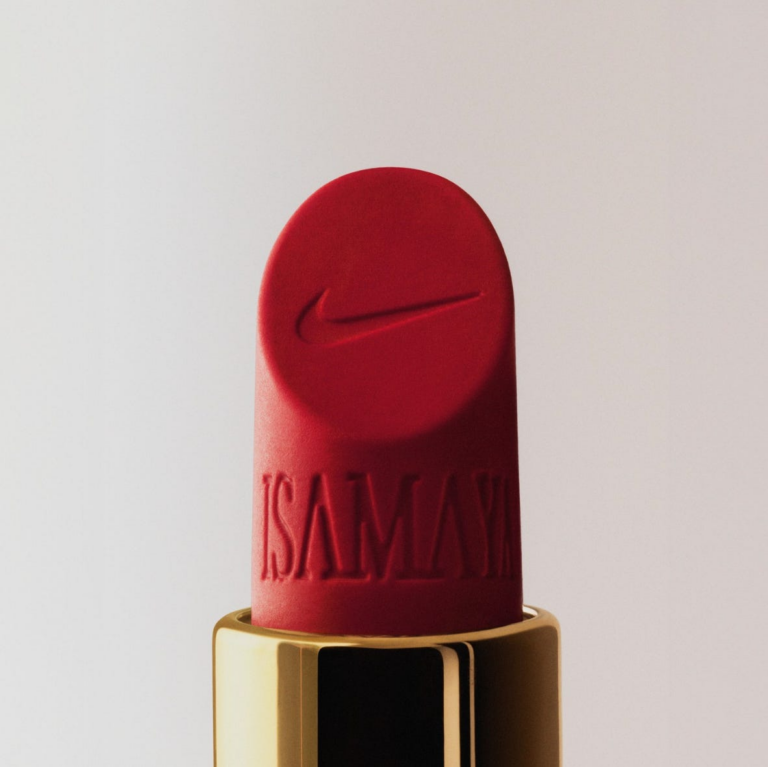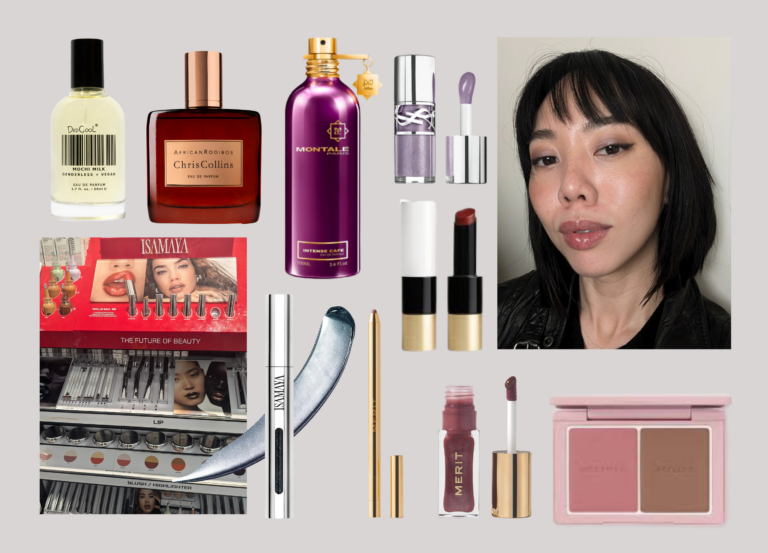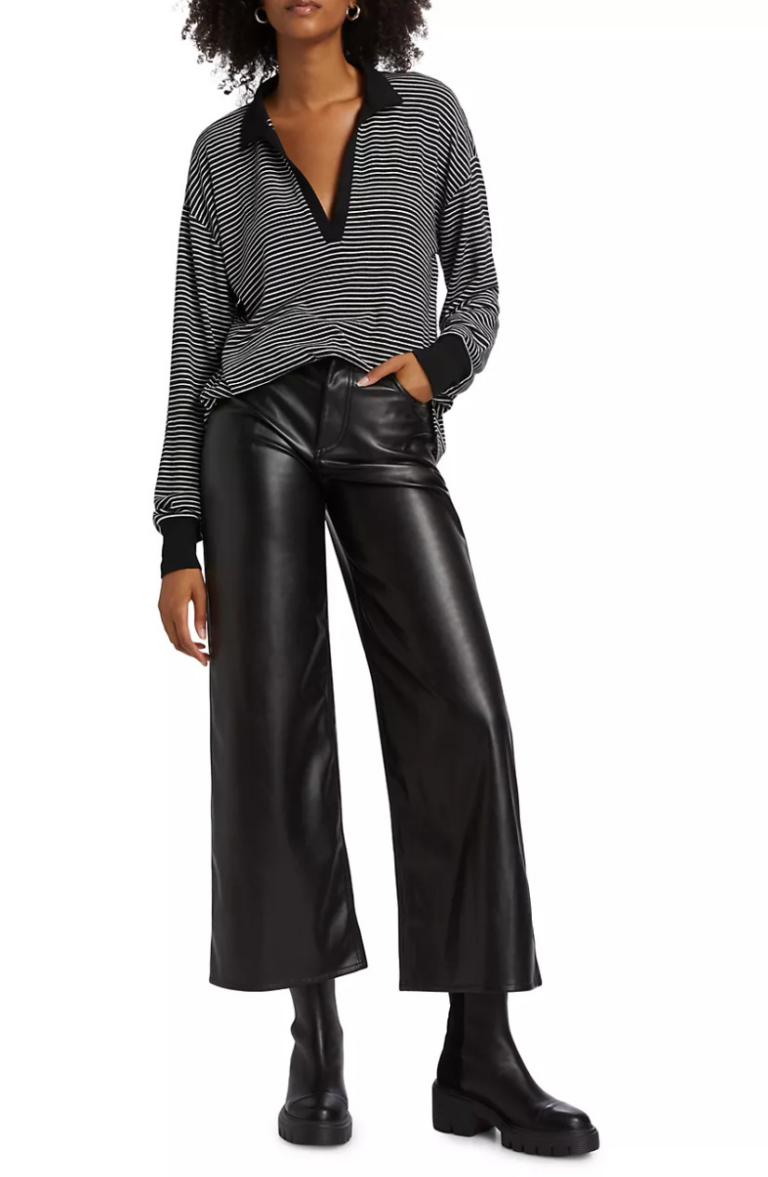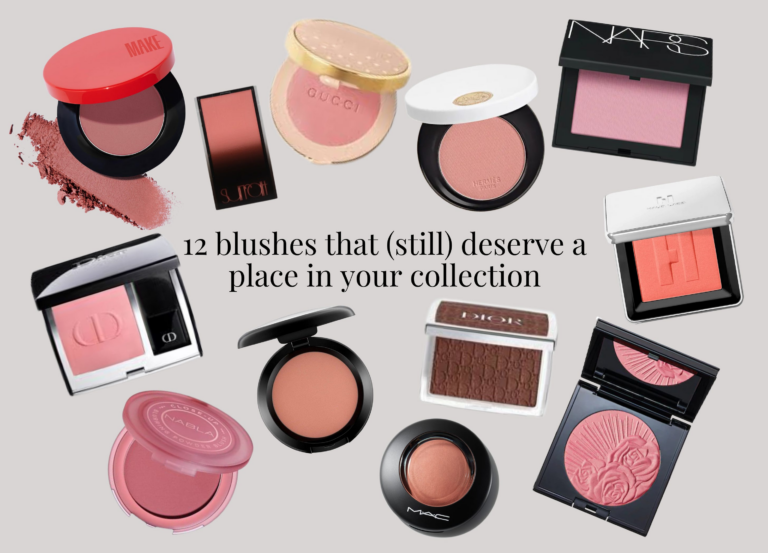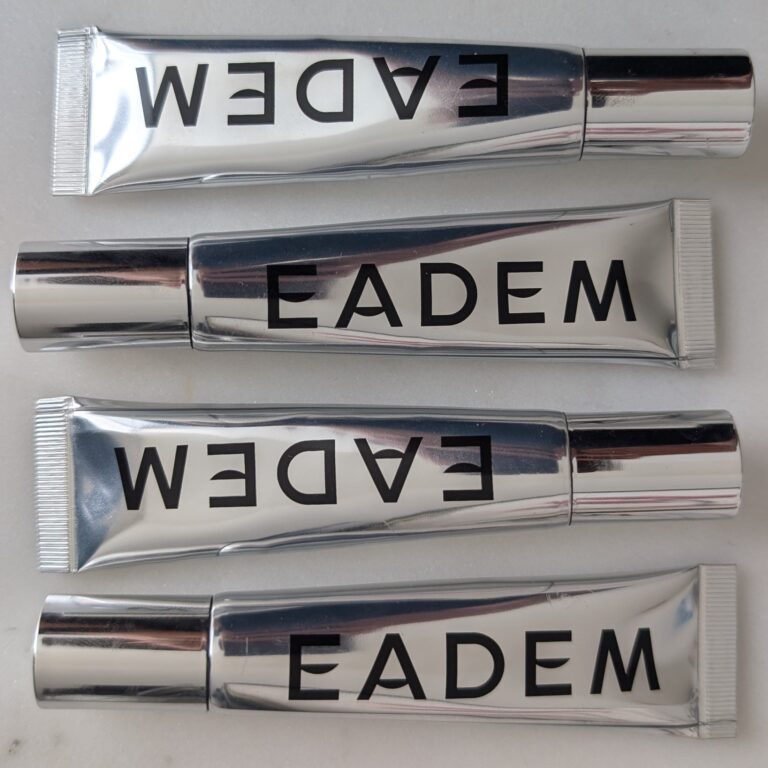The Body Horror of Bridal Beauty
The next installment of Ask Ugly, my monthly beauty advice column for the Guardian, is here!
Hi Ugly,
I haven’t worn makeup in years but my wedding is coming up in November and I’m facing a lot of pressure to wear it (from friends, my mum and my sisters – not my partner). I want to stand by the idea that my natural face is formal enough. I really want to cry, laugh and hug without worrying about smudging my face. But I worry about being “underdressed” at my own wedding. I’m sure even our celebrant will look more glam than me.
Is going bare-faced to my own wedding too radical for people to understand? Should I encourage other people to go natural in my dress code?
– Bare-Faced Bride
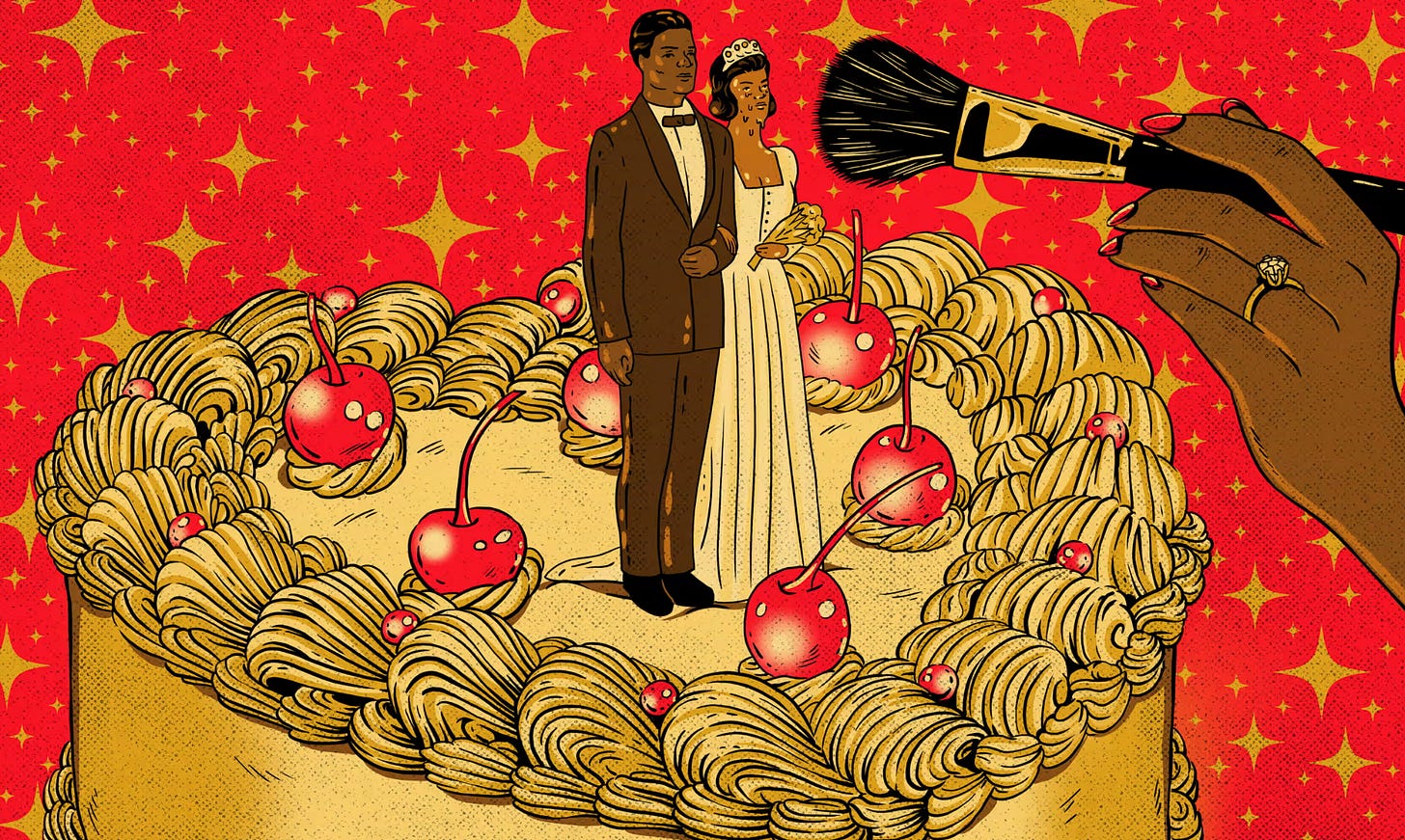
According to a recent article in Allure, “wedding day makeup should be ‘you, but enhanced’”.
Ahem. This is also the promise of The Substance.
I don’t think it’s unfair to compare our cultural obsession with bridal glam to the 2024 body horror blockbuster, in which the main character uses a black market cosmetic injectable to create a “more beautiful, more perfect” version of herself. I’d argue that wedding day beauty has indeed devolved into its own brand of body horror. On the big day, the average bride spends about $300 to transform her ordinary flesh into something worthy of photographic immortalization – very Dorian Gray! – although wedding makeup can reach the “extortionate” price of $1,500.
Prep might begin as much as a year in advance. “I’ve worked with countless brides wanting perfect skin on their wedding day, and they’re always surprised to learn how early we need to get to work,” writes New York-based aesthetician Sofie Pavitt. For those with large pores, for instance, she recommends occasionally inflicting thousands of one-millimeter wounds on the skin to force regeneration (microneedling) and/or penetrating its moisture barrier with fractional laser beams (Clear + Brilliant) over a period of 12 months. This will ensure that “makeup sits beautifully and lasts all day”, she says.
Popular day-of tips encourage the affianced to defy the laws of physics by letting their “skin shine through [their] makeup” and turning their “own natural beauty up to ‘medium’”.
A bride who spares no financial or temporal investment may feel “8/10 happy … pretty good” about her nuptial glam – like Emily Weiss, founder of the ultimate “you but better” beauty brand, Glossier, who detailed the extensive pre-wedding routine for her “limbs, skin, wanted hair, unwanted hair, nails, muscles, digestive tract, lashes and brows” on her beauty blog Into The Gloss. Or she may look so wonderful getting married that she “never feel[s] pretty again,” as influencer Thea Vaporis joked in an Instagram post juxtaposing her normal, makeup-free face with the fully made-up face from her wedding photos.
With ideal outcomes like these, why bother? Why put so much effort into making your face different from the face that was proposed to, the one that will remain married? Why is this matrimonial metamorphosis so normalized, expected – even, in your case, encouraged?
It might have something to do with the patriarchal history of marriage as property exchange. From about 1300 to 1800 AD, women were treated as assets and traded to secure wealth. (To wit: The Knot claims “Old Money Makeup” is the number one wedding beauty trend of 2025.) Today, most women can choose who and why they marry, but marriage is still seen as “a major marker of success”, Elise Hu, the author of Flawless: Lessons in Looks and Culture from the K-Beauty Capital, told me earlier this month. “That pursuit and performance of success extends to the body and the face.”
In the TikTok era, these performative aspects of a wedding get dialed up to 11.
“Social media is the fuel to the fire when it comes to the increasing demand surrounding wedding beauty products, services and advice,” Business of Fashion reports, noting that the arrival of image-focused apps in the 2010s is associated with doubled budgets and increased pressure from peers to put together a picture-perfect wedding.
Makeup artist Saskia Wright told Business of Fashion that more brides are requesting pictures of themselves peering into a compact, admiring their own wedding makeup. The final image doesn’t portray the person, but their mirror image, captured with a camera lens – which is then seen through the screen of a smartphone. It’s a doppelganger to the power of three, which strikes me as an apt metaphor for your situation. If you do decide to wear makeup to your wedding, would you be doing it for yourself – or the version of yourself surveilled by society, sublimated into the symbolic bride, and preserved in a virtual scrapbook?
Continue Reading On The Guardian
The rest of my answer includes:
-
what to do when aestheticizing life gets in the way of experiencing it
-
why getting married makeup-free is radical (but 200 years ago, so was marrying for love!)
-
how to handle the whole wedding dress code thing
-
and more!
Click through to the Guardian to read the full article (and if you decide to share it with friends or on social media or whatever, please share it via the Guardian link).
Read On The Guardian

